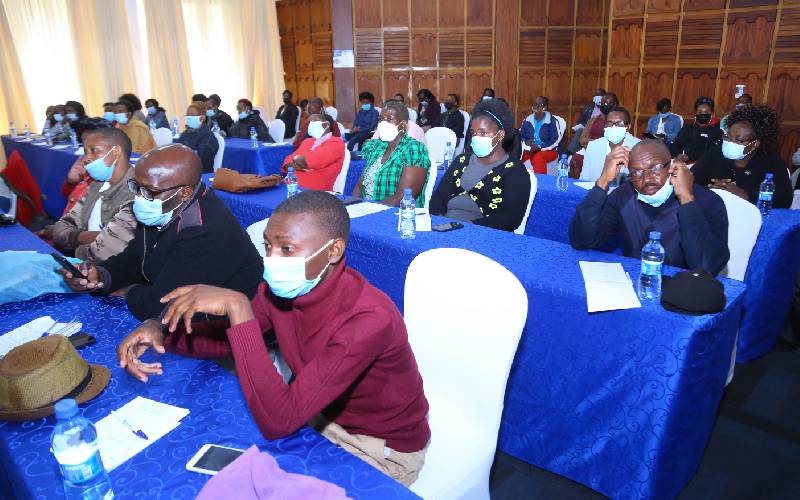×
The Standard e-Paper
Smart Minds Choose Us

Teachers from across the country at the 4K Clubs training session at the KICD in Nairobi on Saturday. [Jael Mboga, Standard]
The national curriculum agency has said it is crucial to include hygiene and nutrition as part of the syllabus.